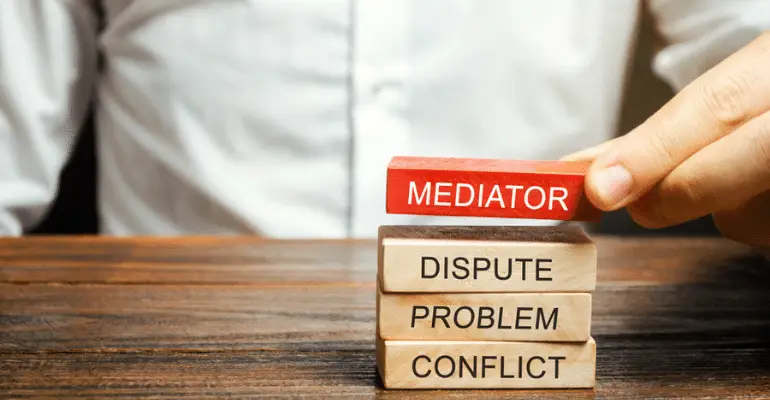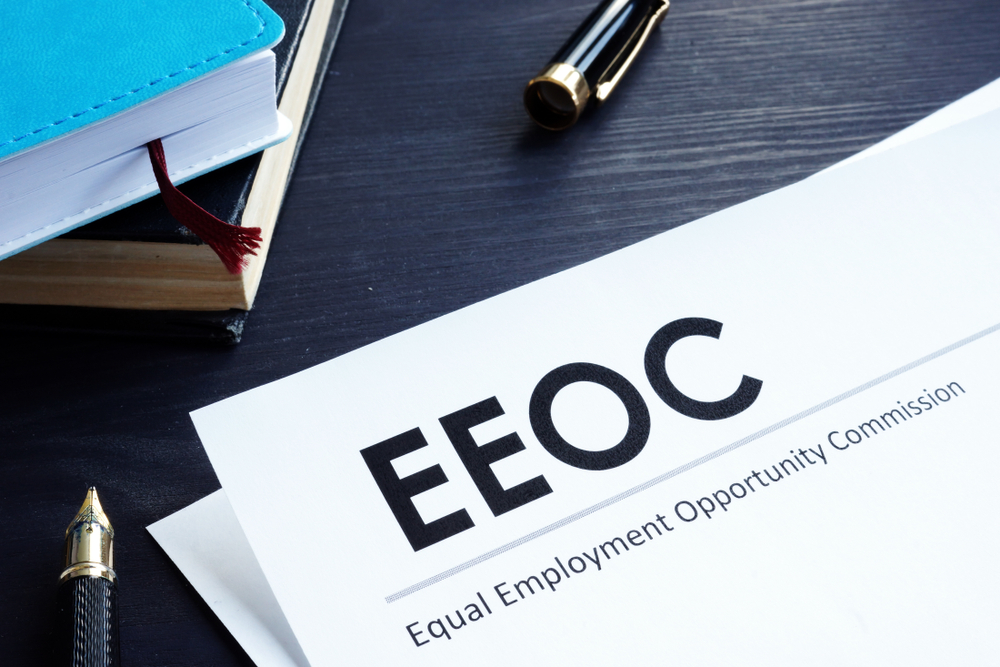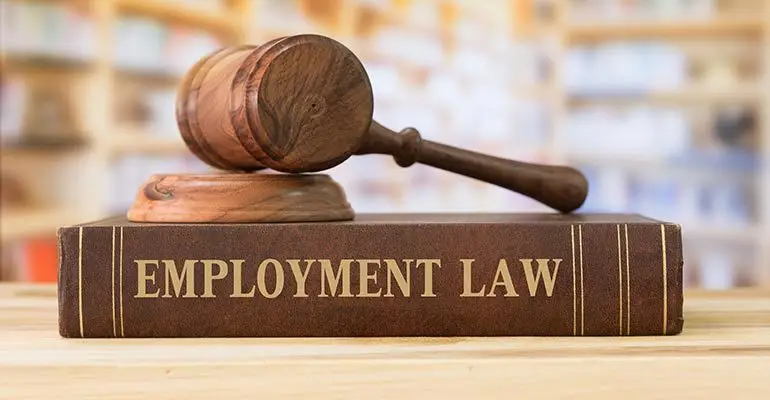Understanding the EEOC Mediation Process

The United States Equal Employment Opportunity Commission (EEOC) was established through the Civil Rights Act of 1964. This federal agency protects workers and employees against discrimination and unfair practices in the workplace, investigating the circumstances surrounding claims of regulatory violations.
When victims report workplace discrimination to the EEOC, federal agents will assess the situation and determine the accusation’s validity. Many claims of discrimination are settled through the EEOC mediation process.
This program was established in the late 1990s as a way to resolve charges of workplace discrimination. But how does EEOC mediation work?
To start, the term “mediation” refers to a specific method of dispute resolution that involves the intervention of a neutral third party to settle a disagreement. This third party is called a mediator.
This approach allows both parties to avoid the costly trial process. Failing to resolve a claim of workplace discrimination through this method may result in the need for a lengthy investigation and lawsuits.
An EEOC mediator will meet with both parties involved in the dispute to help them agree, but only some claims result in these deliberations. The agency receives thousands of accusations of discrimination each year and only chooses some to mediate.
When the EEOC determines a case suitable for them to intervene, they contact the party filing the charge and their employer, and both parties must agree for it to occur. If you find that your employer declined EEOC mediation, the claim will be handled by the agency’s Investigation Unit.
How Does EEOC Mediation Work?

The agency representative will ask the charging party (the employee) and the respondent (the employer) to explain their positions. The employee will then offer their EEOC mediation opening statement.
The party alleging discrimination must explain why they filed the complaint and what they hope to achieve through this conference. After the claimant speaks, the employer will provide their perspective on the workplace dispute. The mediator will help both parties overcome their disagreements and cultivate an agreement that suits them.
Rest assured: The EEOC mediation process is one of the most effective dispute-resolution programs in the country. When you agree to undergo this process, you do not forego any of your rights as a claimant, and it is also accessible for participants. A skilled employment lawyer can also help you work to secure outcomes that work in your best interests.
How Long Does EEOC Mediation Take?
Many victims of workplace discrimination wonder about how long it takes to undergo mediation. Each employment discrimination case involves many unique factors influencing how long it will last.
A successful dispute can sometimes be completed in a single session that often lasts between three and four hours.
This can help to avoid the need for a lengthy claim examination by the agency’s Investigation Unit. More complicated cases may require longer meetings or multiple sessions. Some of the factors that will determine the length of an EEOC mediation include:
- The type of discrimination being alleged
- The kind of work the employee provides
- The relevant evidence in the case
- The size of each party’s statement
- The nature of the dispute
- The complexity of the situation
The goals of each party will also influence the duration of the session. If each party’s goals are mutually exclusive, it may take longer to find an outcome suitable for everyone.
It is important to prepare questions and statements before each meeting. Claimants should be ready to discuss their employment dispute with the mediator and the opposing party.
According to the EEOC, the average dispute resolution takes 84 days to process after the meetings are concluded. Speak with an accomplished employment attorney for help ensuring smooth proceedings.
How Successful Is EEOC Mediation?
Overall, these discussions are an effective tool for resolving disputes between multiple parties, and the EEOC mediation process has a long track record of success.
The EEOC mediation statistics are awe-inspiring. Between the program’s launch in 1999 and 2017, the EEOC Mediation Unit took on more than 200,000 workplace discrimination disputes.

While the approach is highly successful, discrimination victims should consider the value of legal representation throughout this dispute resolution.
Having an attorney represent your interests throughout the process is incredibly helpful. A skilled employment lawyer will present the most persuasive version of your claim. They will not agree to a settlement or dispute resolution that undermines your allegation of workplace discrimination.
Often, employees who have been mistreated are uncertain about how to fight for their interests most effectively. Seasoned attorneys have a thorough knowledge of Title VII of the Civil Rights Act, the Americans with Disabilities Act, and other federal and state laws protecting against discrimination.
If you have experienced discrimination in the workplace, it is critical to file a claim with the EEOC and secure the services of a trusted legal professional. A lawyer will provide you with practical EEOC mediation training to prepare you for the requirements of the process.
What Is the Typical EEOC Mediation Settlement Amount?
Many victims of workplace discrimination are best served by participating in an EEOC mediation. This is especially true when claimants have an accomplished employment law attorney representing them.
So what is the typical EEOC mediation settlement amount? According to the agency, the average settlement for workplace discrimination claims is approximately $40,000.
However, some discrimination claims are worth much more. For instance, the top tenth percentile of wrongful termination and discrimination claims result in settlement of at least $1M.
Securing the services of a knowledgeable legal representative will give you the best chance of a positive outcome in your case. Do not allow an unscrupulous employer to go unaccountable for their discriminatory behavior. Contact an attorney to help facilitate deliberations that resolve in your favor.
EEOC Mediation Outcomes
EEOC representatives will work to find common ground between the two opposing parties. Finding a solution advantageous for both the employer and worker prevents the need for a thorough investigation and possible trial.
Something to note, however, is that this is a very different process from a courtroom trial. The mediator does not have the authority to determine which party prevails in the dispute, and instead, they look for workable compromises to resolve the disagreement.
In many instances, mediators and parties alike can find win-win resolutions where both the worker and employer may be able to secure the outcome they prefer.
Even if one party decides to compromise more than the other, both parties benefit from avoiding the stress and time-consuming requirements of a lawsuit. When both parties craft an agreement that suits their purposes, they will sign it and adhere to the specified terms.
EEOC agreements are legally binding documents, guaranteeing that the dispute is fully resolved once the negotiations are complete. Often, these dispute resolution agreements include details regarding the compensation the employer owes the charging party.
Contact an attorney if you are planning to file a workplace discrimination claim or are facing EEOC mediation. A knowledgeable employment lawyer will determine the most likely outcomes for your case and ensure that you craft an agreement that benefits you.
What Happens If EEOC Mediation Fails?
While many sessions result in successful dispute resolutions, some do not. In some cases, the opposing parties cannot agree in their dispute.
So what happens if EEOC mediation fails? Typically, the EEOC will investigate the claim the same way they do others. Charges of workplace discrimination must be filed within 180 days of the inciting incident.
If your employer is uncooperative, the process may not be successful. The charge is sent to the EEOC Investigation Unit after a failed negotiation.
This portion of the agency will carefully assess the facts of the discrimination charge. The Investigation Unit will determine whether the circumstance qualifies as a violation of the law. They will collect relevant evidence by:
- Interviewing eyewitnesses to the discriminatory practices
- Obtaining relevant documents related to the charge
- Collecting video or audio recordings
- Securing any remaining evidence that discrimination occurred
The discrimination charge may be dismissed if the case facts do not support the employee’s claim. Alternatively, the EEOC may offer the claimant a potential solution to the discrimination case.
When employees are unhappy with the EEOC’s offer, they can request an administrative hearing. During this process, an EEOC administrative judge will consider the facts of the charge and determine the amount of compensation the claimant is owed.
If the employee disagrees with the decision of the EEOC administrative judge, they can file a further appeal. Regardless of the state of your workplace discrimination claim, hiring a skilled attorney to fight for you is helpful.
When to Consult an Employment Attorney for EEOC Mediation
When your employer has engaged in discriminatory behavior, you have the right to pursue compensation for the harm you have sustained. The anti-discrimination regulations detailed in federal and state law are guaranteed to all workers.
Filing a charge of discrimination with the EEOC is the first step to securing justice in your case. However, some claimants attempt to pursue financial recovery without the help of a knowledgeable employment attorney, and this is inadvisable.
If you have experienced discrimination or unfair treatment in the workplace, discuss your case with a lawyer as soon as possible. A trained legal professional can help you determine the best course of action.
An employment attorney will forcefully advocate on your behalf as you maneuver through these negotiations. Do not accept an EEOC dispute resolution agreement without the legal advice of a trained professional.
Employees who hire a legal representative can often secure more successful outcomes through these sessions. The attorneys at Wenzel Fenton Cabassa know what it takes to fight for victims of workplace discrimination.
It is essential to fight for what you deserve if you have been discriminated against. With the help of an employment attorney, you can work to find a dispute resolution that is in your best interests.
Employers who violate workplace discrimination regulations should not go unaccountable. Contact the skilled employment attorneys at Wenzel Fenton Cabassa today for a free legal case evaluation regarding your workplace discrimination claim.
Please Note: At the time this article was written, the information contained within it was current based on the prevailing law at the time. Laws and precedents are subject to change, so this information may not be up to date. Always speak with a law firm regarding any legal situation to get the most current information available.
Related Posts
Recent Posts
- False Claims Act Retaliation & Your Rights
- Fired for Being Pregnant? 5 Situations When You Should Call an Employment Lawyer
- Can My Boss Take My Tips? The Laws of Tip Ownership
- What Does “Meets FCRA Requirements” Mean?
- Can Your Employer Contact You While on Medical Leave? Know Your FMLA Rights in Florida
Contact Us

FREE HELP GUIDES
Dealing with unpaid wages, discrimination or wrongful termination? Get the information you need to protect your workplace rights. We offer employment law resources to help you fight for workplace justice.



